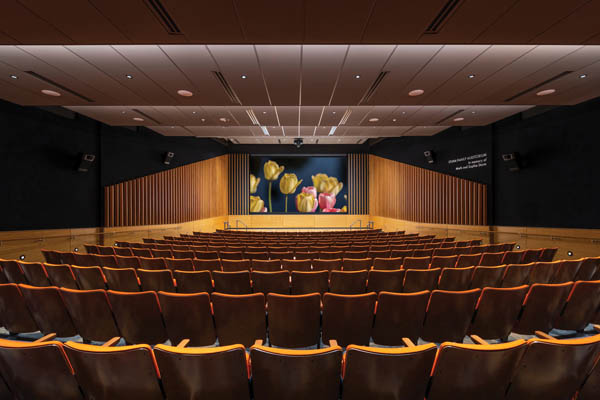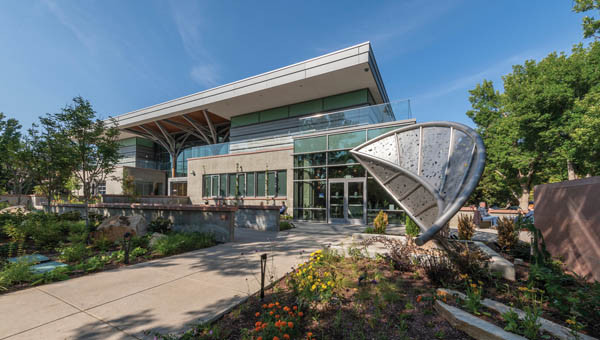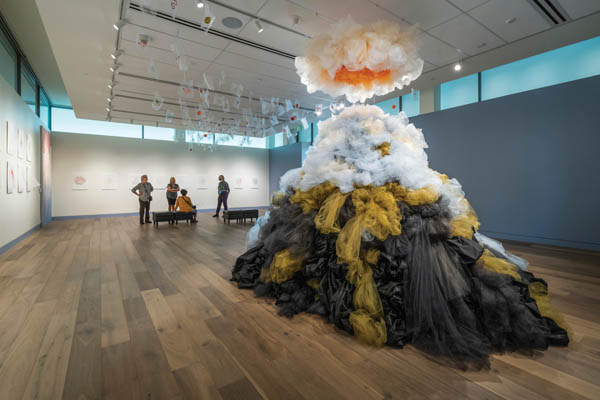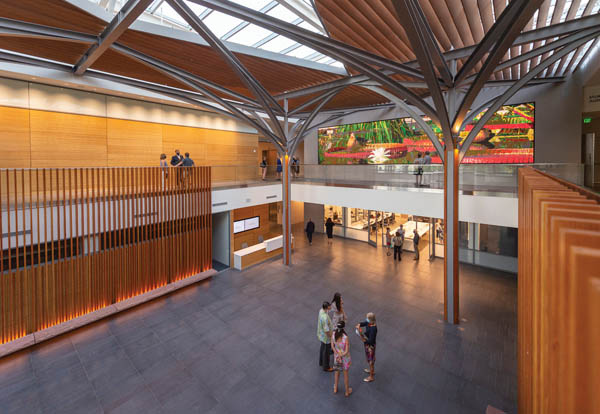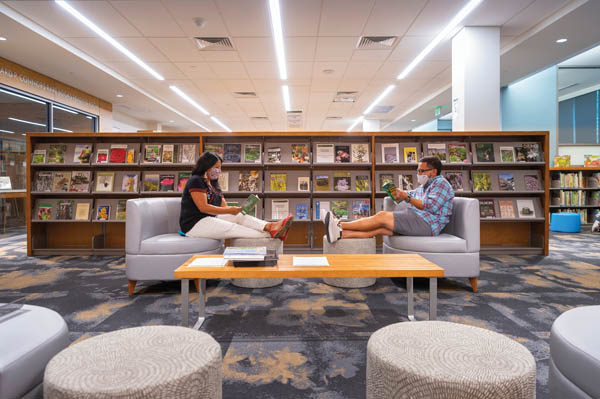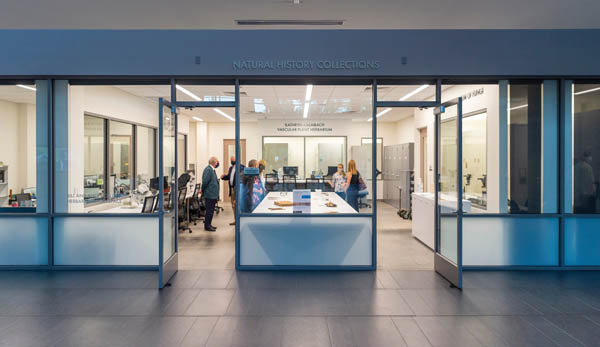THE DENVER BOTANIC GARDENS merged the art and science of plants into one learning hub
PHOTOS: SCOTT DRESSEL-MARTIN, COURTESY OF DENVER BOTANIC GARDENS
ALTHOUGH the Freyer-Newman Center opened with fits and starts thanks to the pandemic, this $40 million manifestation of dedication to the fusion of art and science is a game changer for Denver Botanic Gardens, says CEO Brian Vogt. “It’s been a giant leap for us because of the three areas we focus on— science, art, education. Very few institutions like ours have the capacity to grow like we are.” The space is unique because it brings under one roof horticulture, plant conservation and preservation, mycology and art in a way that it highlights human relationships with these elements. And it’s done in a way designed specifically to make it more accessible to the public.
Take, for example, the Copper Door Coffee Roasters. It’s a coffee shop in the building that’s purpose is to entice people to linger. “It’s a gathering place,” says Vogt. “There are pop-up exhibits and classes. It’s where the community comes together to share information and interpretations—all in this space.” In addition, the 100,000-square-foot center features the Helen Fowler Library, the Sturm Family Auditorium, three climate-controlled art galleries, an herbaria, six classrooms, science labs and the School of Botanical Art & Illustration. Denver Botanic Gardens is setting a new precedent with its library. “It’s exciting because we’re going against trends in the cultural world,” Vogt says. “Many gardens have given up on libraries, but we tripled the size of ours.”
Much of the work is happening in the science labs that allow for expanded ecology, genetic and tissue culture work. “Hardcore research has been lifted up dramatically,” says Vogt, who adds that there is much research happening around endangered and threatened species in Colorado. One of the more significant areas of study is tracking bloom time of plants, which is extremely important in the face of climate change.
“We’re looking at alpine plants over, say, a 25-year period,” Vogt says. “We can see if there is a change in bloom time—and there has been a change. There are plants that could be endangered because pollinators might not be pollinating when bloom time changes.” This information can have a significant impact on how we solve for the problem. The information is digitized and feeds into an international database.
The Gardens is looking at the problem of climate change from all angles, including the conservation perspective. The LEED GOLD certified building was a must for this project. “We’re doing our very best to walk the most sustainable walk we can,” Vogt says. The building features a solar array on the roof with expectations of producing 93,000 kWh per year. There are plans to add additional solar on other buildings on the grounds with the idea of getting as close to net-zero as possible. It’s a mission for the Gardens to use this as a tool. “We’re over a million visitors this year, putting us in the top two or three gardens in North America,” Vogt says. “We use our waterways, gardens and buildings as vehicles for communicating and educating.”
Not an organization to rest on its laurels, even this barely completed venture is launching the Gardens into new territory. The Denver Film Festival held screenings of Belfast and other films in late 2021 in the Freyer-Newman Center’s Sturm Family Auditorium. The 272-seat space with 7.1 Dolby Surround Sound and 4K laser projection system rivals most movie theaters, and impressed festival goers. The positive response supported an idea already underway: to not only showcase the variety of licensed documentaries on the docket, but also to create their own. As such, Denver Botanic Films is in production with two films: One about human-tree relationships and the other about the Amache Japanese Internment Camp in Granada, Colorado, where the interned people developed Japanese-style gardens to seek comfort during a horrible time. Watch for these new films to hit the Denver Botanic Gardens’ big screen in late 2022.
DENVER BOTANIC GARDENS
720.865.3500; botanicgardens.org

